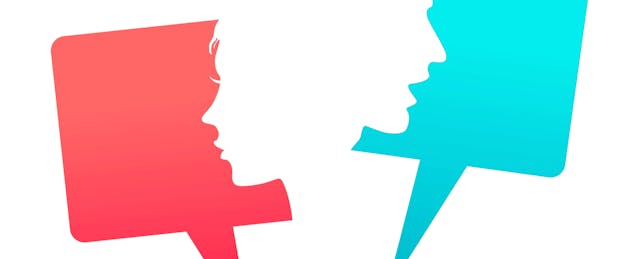Several years ago, after observing a class of students in a tough area of Boston run their own debate for a full class period, I commented that I couldn’t tell who was friends with whom because they all agreed and disagreed only on the basis of convincing arguments. I wasn’t seeing any “I’m with him” or “us against them” attitudes.
The students sat quietly and thought about that for a moment before one of them said, “I think we’re all friends.” These were 7th graders at prime age for forming cliques, but they had learned to listen to each other’s views and to disagree respectfully.
In a political era in which many Americans are disheartened by rhetoric that challenges the norms for civility in public discourse, and that plays fast and loose with factual evidence, we can all learn a lesson from them.
Today, schools across the country are reaching for a higher standard in discourse. Some have chosen Word Generation—an open education resource available for free to all—to accomplish this. WordGen was developed by the Strategic Education Research Partnership (SERP), the organization for which I serve as executive director. WordGen offers students and teachers the materials and guidance they need to bring serious debate about important social issues into the classroom. At the same time, WordGen promotes respectful, fact-based conversations where students must support their position with reasoning and evidence.
Word Generation is a supplementary curricular resource that offers a series of discussable dilemmas designed to promote students’ academic language and argumentation skills in English language arts, math and other subjects. Each of the 98 one- to two-week units focuses around a social or civic dilemma of interest to students in grades 4 to 8. Word Generation creates the opportunity for students to become familiar with current issues and persistent dilemmas, while acquiring skills prioritized in the Common Core State Standards.
Challenging issues include: Why do we value what we value? Do we need to give up our privacy to protect our communities? Is the death penalty justified? Are kids responsible for stepping in to prevent bullying? Should doctors be allowed to assist seriously ill patients with suicide? What makes an American?
With guidance from a teacher, students become increasingly skilled across the school year at developing and supporting arguments and at listening to and responding to each other’s reasoning. Perhaps most importantly, students become comfortable changing their minds after considering new evidence or arguments.
The idea that we should start early with learning to engage in civil debate is not an easy sell. Many teachers initially express doubt that their students are capable of thinking about and discussing complex social issues, let alone seeing those issues from multiple perspectives. But often they are surprised by what they hear.
After years of teaching, a veteran teacher told me she was embarrassed to learn that she had been greatly underestimating her students’ thoughtfulness. Her 7th grade students had just debated whether school athletic teams should require a minimum G.P.A. One student said “yes” because too many kids think they will be the next sports star, but most won’t and need to be able to be able to get good grades so they can get a job in the future. Another disagreed, asking if someone who really struggles academically because they just don’t understand even when they try hard should be doubly punished by not being able to play on a team.
I’ve also seen the right question literally wake up a student. Ten minutes into a debate—What do we have a right to know about people who are running for office?—a hand drifted up from a student who had slumped into class and put his head on his desk as the period began. The student said he didn’t think everybody has a right to know if a candidate did something when he was a teenager, like smoking marijuana. But if a candidate smoked marijuana recently as a fully grown adult, he said, “I have a right to know because I’m not going to vote for somebody who thinks he can break the law.” Stereotypes would have pegged this student as a likely law breaker. Giving him voice revealed a morally sophisticated thinker in the guise of a disengaged student.
The Parkland tragedy has sparked a youth-led revolution in which passivity is passé, giving way to young people’s passionate participation. As educators, our challenge and opportunity is to give our students the tools they need to engage in a civil society whose future they will shape.


